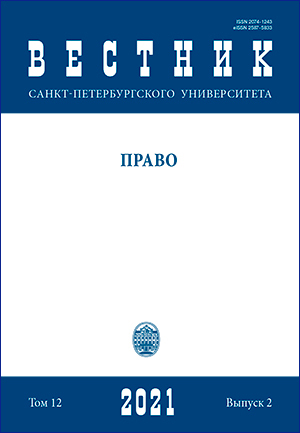The creation of China’s lenient punishments for those confessing to their crimes and accepting punishments in criminal cases and its theoretical reflection
DOI:
https://doi.org/10.21638/spbu14.2021.210Аннотация
The reform to improve the system of admitting guilt and accepting punishment for leniency is one of the important measures to “promote the reform of the jury-centered litigation system”, which is parallel to the substantial reform of court hearings. After pilot reform, it was finally confirmed by legislation. From the perspective of legislative norms, the leniency system of confession to a crime and acceptance of punishment includes basic principles, applicable standards for confession and acceptance of punishment, procedural norms and a system for the protection of rights. From the analysis of its nature, it is a diversion mechanism of criminal procedure, rather than a plea-bargaining system, which mainly implements the statutory penalty and is supplemented by the application of discretion and also embodies voluntary confession and other Chinese characteristics. The reform to the leniency system of admitting to a crime and accepting punishment contributed to the development of the conceptual and theoretical system of the leniency system and formed a series of theoretical systems for pleading guilty with Chinese characteristics: the generation of the penalty theory of postcrime behavior, a balance of justice and efficiency of the program from a simple theory, and the development of the effective defense system in China. It is particularly noteworthy that the system of admitting guilt and accepting punishment for leniency in China is a sentencing negotiation system rather than a conviction negotiation system.
Ключевые слова:
Сhina, reform, guilt, punishment, leniency, voluntary, plea bargain
Скачивания
Библиографические ссылки
Загрузки
Опубликован
Как цитировать
Выпуск
Раздел
Лицензия
Статьи журнала «Вестник Санкт-Петербургского университета. Право» находятся в открытом доступе и распространяются в соответствии с условиями Лицензионного Договора с Санкт-Петербургским государственным университетом, который бесплатно предоставляет авторам неограниченное распространение и самостоятельное архивирование.






